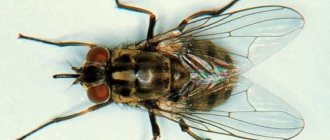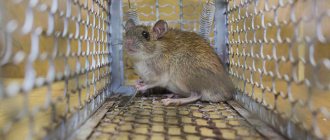- home
- Rat
- Care
06/24/2019 Domestic rats are simple pets that do not cause many problems if well kept and given proper attention from the owner. Healthy rodents are not aggressive and friendly. Therefore, if a rat bites you, you don’t immediately panic – perhaps this is an isolated incident that occurred due to a number of specific reasons. If your pet bites often, you need to find out what motivates this action and what to do.
Do house rats bite?
These are affectionate, kind animals. They are loving, adore their owner and show a positive attitude in every possible way. However, it happens that a pet suddenly bites.
It is worth noting that the bite of a decorative rat is very painful and quite strong, reaching 500 kg per 1 cm². The bite force allows wild brethren to gnaw concrete in search of food.
As a rule, a light, warning bite follows first.
A rat bitten until it bled: first aid
The wound is usually deep, very painful and has difficulty healing. In this case, the edges are quickly tightened, which prevents blood from escaping, which could have become infected.
Algorithm of actions:
- First of all, squeeze out as much blood as possible from the wound to eliminate the presence of dirt.
- Rinse under running water for at least 5 minutes.
- Then treat the bite site with any antiseptic: hydrogen peroxide, chlorhexidine, a weak solution of potassium permanganate.
- Apply iodine or brilliant green to the wound.
- If necessary, cover with adhesive tape.
- Monitor your health for a few days. And do all household chores with gloves.
Wound treatment is the same for adults and children.
It is of great importance that the pet is truly domestic, vaccinated and kept in good conditions.
If a rat bites a child, be sure to talk to the child and explain how to handle the pet. The bite could occur after the animal was squeezed too hard, hurt or scared. The main thing is to explain to the child that the rat must be handled carefully and then it will not cause trouble.
The existence of cannibal rats
Cannibal rats are often described in various films and literary works. However, in real life they do not exist. To date, there is not a single recorded case of a pack of rodents hunting people.
Human meat can only get on a rat's menu if the animal has no way to get other food. In this case, rodents can only gnaw the corpse.
Rats are amazing animals with good mental abilities and the ability to quickly adapt to environmental conditions. At the same time, they often come into contact with a person, harming him and creating many difficulties.
Other causes of bites
A completely understandable desire to dominate, inherent in an animal by nature itself. As a rule, young animals who want to establish a hierarchy express themselves with the help of bites. For them, biting means a way to assert themselves, test the “strength” of their fellow creatures, and challenge others, including humans. There is no need to use any physical action for this behavior; it is enough to continue to communicate calmly, and you can switch the animal’s attention to a game or a treat.
A bite can be a completely logical response to a stressed animal. When he feels danger and is afraid, he can begin to act according to the principle: “the best defense is an attack.” Unexpected loud noises, such as neighbor's renovations or street fireworks, can also frighten the animal. True, a similar reaction may also occur to insufficiently good conditions of detention.
Everything new, at a minimum, is alarming for the pet - whether it’s a new owner or moving to a new house, the rat will need some time to get used to it and get comfortable. Until then, she will be frightened by unfamiliar smells and surroundings. By the way, if the owner has to come into contact with other animals, then after this it is worth washing their hands thoroughly to remove their odors and not cause unnecessary anxiety to the rat.
If a rat has been mistreated, neglected and abused, it can become not only fearful, but also aggressive. The consequence of both may be the desire to bite. Although excessive attention can also do a disservice. If a rat is endlessly carried in your arms, squeezed and tormented with hugs, then it can give a warning bite, indicating that it is better to leave it alone.
The desire to bite can be a signal of a pet's bad mood or represent a character trait. A rat can share territory with a cage neighbor, of course, with the help of bites to show “who is stronger here.” She can bite a brother, and become jealous of his owner, for example. It is noteworthy that rats, just like people, have completely different characters. There are animals that do not bite in principle, and there are also those that react this way to any stimulus.
Decorative rats can also bite because they are hungry. You should always give your pet food on time, and wash your hands after preparing food so that they don’t smell like food, which can confuse a curious little animal.
When experiencing pain or discomfort, your pet may become restless and even bite. Although the malaise may not be expressed outwardly. Therefore, if you notice that your animal is behaving unusually, you should consult a veterinarian.
Steps to Taming a Baby Rat
The rat is tamed in stages:
- At the first stage, teach your pet to approach the cage door to get a treat. This is necessary so that when you need the animal to come to the door, and you don’t have to chase it throughout the cage. Shake the bowl of treats, the rat will perk up and may come to the door. If this does not happen, try to lure it to the door by bringing a tasty morsel under the animal’s nose. You can train her to respond not to the sound of a treat, but to the pronunciation of the pet’s name. To do this, say his name every time before offering a treat. He will get used to his name.
When offering a treat, lure your pet into your palm. Taking pieces of treats in your hand, stick your palm with them into the open door. When the little rat takes one piece and starts eating, you need to make sure that he has to leave the cage for the next one. The rat will gradually begin to follow the hand with the treat. Gradually move your hand away every day so that at one moment it has to feast on a piece, climbing into your palm.
Allow the rat to move around outside the cage. If a curious animal wants to get out of the cage and explore the surrounding area, then do not forbid him to do so. Perhaps she will want to eat a treat from your hands and will come up to you for this. Let him eat. In addition, your pet can climb on your clothing; do not make sudden movements. She must trust you. Keep the door to the cage open, the pet will decide when to hide there. This is his shelter and it should be as safe as possible.
A rat that is accustomed to you can already be picked up. Choose a convenient opportunity for this and carefully lure her into a corner. Don't scare the animal. Say kind words to him and stroke him. After picking up the baby, give him a treat and quickly return him to the floor. The rat should not scream or be afraid; only a slight squeak is allowed.
Try to hold the rat in your hands until it calms down. Although this is difficult to do with temperamental individuals, release your pet to the ground only when he calms down in your arms. Try to do this immediately after he stops resisting. In the future, gradually increase the time he spends in your arms.
The rat must be picked up constantly. It's good when you do this every day, at least for twenty minutes, the best time for this is the middle of the day. Do not stop your pet from exploring your body and sniffing you, the main thing is that she spends this period of time in your arms. At first she may try to escape from your hands, squeak and resist, do not allow this to happen. To avoid rat bites, you can first pick up the animal with a towel.
Play with your pet. When he becomes interested in being with you, and he himself asks to be held in your arms, you can arrange a playground using various devices. Just remember, teach each new toy separately so as not to frighten or tire the rat. And the more time you devote to her, the stronger the connection she will have with you.
First aid for a bite
If bitten by a rat, the person needs urgent help. As a rule, the wound is deep and painful. Its peculiarity is the high rate of cell regeneration at the edges and low in the center. This causes a characteristic clinical picture: the blood along the perimeter of the deformation of the epidermis quickly stops. This situation increases the chances of human infection if the animal has been infected.
Any owner of a pet rat should know what to do in this case, how to help himself at home:
- Apply light pressure to the wound to release blood.
- Rinse the rat bite. Hold the wound under running water for 5–6 minutes.
- Apply any antiseptic (hydrogen peroxide, chlorhexidine) to the bite area.
- Treat the affected area with iodine or brilliant green.
- Place a small swab on the wound and secure with adhesive tape.
After the treatment, you should pay attention to changes in well-being and monitor your health over the next 4–5 days. It is better not to wet the bite site; wash dishes with gloves.
Important! The rate of healing of a wound after a rat bite depends on the health of the animal (at the time of the attack), whether it has mandatory vaccinations, and the quality of keeping the pet in the cage. If the rat's home is not cleaned regularly, there is a high risk of infection in the wound.
Habitat
The main difference between these two species is habitat.
The gray rat or pasyuk is a real synanthrope that lives next to humans. On land, it inhabits all types of residential and commercial buildings.
Large and stable centers of rat concentration are meat processing plants, fish processing plants, and city markets. Moreover, shops, warehouses, and food factories located in residential areas are also places of persistently increased numbers of rodents and centers of their spread to neighboring properties.
Using this example, a distinction can be made between “street” and “house” rats. The deterioration of living conditions in the external environment provokes pasyuks to look for more comfortable places, that is, living quarters where there is everything necessary for their life: food, water, microclimate.
The black rat is also a real synanthrope. The main places of its permanent habitat are sea vessels (passenger and fishing) and port facilities. It is characterized by shelters located in the cracks of the stone foundations of berths, in the lining of holds and the walls of premises. Sometimes they can build their burrows in open ground.
What to do if bitten by a domestic rat?
Pay attention to your pet, maybe he wants something or is warning about something. A decorative rat will not bite on purpose to hurt. This could be anything: from a desire to attract attention to a warning.
Article on the topic: Water bowl, clothes, carrier and ball for a rat - do rodents need such accessories?
Rats often play this way with other pets; they can run up, bite, for example, the ear and run away. Then return and repeat in a circle. Sometimes they lightly pinch with their teeth or bite them - such caresses are evidence of the pet’s great love, a manifestation of care. Scratches or abrasions may appear during play, but this is not dangerous.
Danger and consequences of a bite
Although the abilities of rats are often exaggerated, they can indeed create many problems for humans. The bite of an adult and large rat is especially dangerous; their jaws develop a pressure of up to 500 kg/cm2, which is enough to gnaw through copper or even lead. A finger can easily be bitten to the bone, and the teeth themselves and the saliva of rodents are often infected, so the affected areas take a long time to heal, and secondary infection often occurs. Hungry individuals tend to bite off the skin from the heels or toes of animals, and in the zoo elephants can easily suffer from them - they damage their legs so much that the noble animals cannot stand.
Rats bite each other: what to do?
Between themselves, living in the same cage, animals can fight for territory, which is also evident from the bites on their fur. If animals cannot get along with each other, then it is better to place them in different cages. Sometimes it comes to living in different rooms and completely excluding communication with each other.
The reasons are the same instincts, which are not expressed weakly in all domestic animals; sometimes the call of the ancestors is strong and no punishment will help. Moreover, such competition between rodents does not exclude a good attitude towards the owner.
Keeping decorative rats imposes on the owner the responsibility of caring for and raising his pet. Compliance with basic hygiene rules, careful care of the animal, and selection of high-quality food will bring results. A kind, affectionate pet rat will not bite and will remain cheerful and healthy.
Increased hormonal levels
Until the age of one year, the rat grows and develops, so the period of growing up and puberty is characterized by a surge of hormones. If there are two “young men” in a cage, then perhaps one of them is trying to establish himself as an alpha male by showing aggression towards a weaker comrade. In rats, the social hierarchy is generally very well built.
Upon reaching the age of one year, passions should subside somewhat, although an adult rat can sometimes cause problems. Sometimes a rat’s aggression does not weaken with age, and at one point it may even bite you.
When aggressiveness is observed in rats against the background of rising hormone levels, they do not experience fear at all. They won't sit huddled in a corner; on the contrary, they will challenge you. You will have to correct this behavior.
Pain
Like most other mammals and rodents in particular, a rat can bite when it experiences a sudden attack of pain. An accident could theoretically happen anywhere - during play and even inside the cage. Such a bite should be regarded as a defensive reaction.
If a hitherto calm animal suddenly begins to bite, there may be something wrong with its health, it is better to show it to a veterinarian. It is necessary to either immediately exclude the competence of veterinary medicine or begin treatment on time.
Redirected aggression
If two rats divide spheres of influence and find out which of them is in charge, you risk becoming a victim of redirected (indirect) aggression. Don't get caught between warring rats and don't take the bite personally: as they say, it was nothing personal. Soon everything will be forgotten, no complaints against you.
If you nevertheless decide to take on the duties of a referee and want to separate the fighters, then you need to prepare thoroughly. First of all, protect your hand by wrapping it in a thick cloth. Second, splash water on your pets. If you were bitten, take it for granted.
Causes
To maintain good, friendly relationships, you should avoid situations in which the rat might bite.
- The pet was hurt;
- Scared;
- Hungry animal;
- The desire to attract attention.
Bites without a reason in domestic rats are practically excluded. If you squeeze an animal for a long time, then when it gets tired, it can gnaw lightly, thereby saying “enough.”
After preparing or eating food, you should also wash your hands thoroughly so that the smell of your fingers is not confused with food.
A rat may also bite another pet, such as a cat or dog. The reasons are the same - protecting one’s territory, fear, approaching danger. It happens that pets get along nicely next to each other and even play.
Any wounds sustained by pet rats should be treated, regardless of whether the bite was a human or a pet.
With a strong bite, the wound may not heal for a long time, especially in an animal when there is fur nearby, which constantly irritates the “battle wound.” Bites are painful, but by providing comfortable conditions for all family members to stay in the house, they can be avoided.
Varieties
Nowadays, more than 90 species of rats have been identified; they differ from each other in size, color and size. In Russia the most common are:
- Gray. Brown-gray fur and large sizes (up to 45 cm and 500 grams) distinguish them from all their fellows. They are able to feed on any food, and can appear in any room, as long as there is food inside. In nature, they live near bodies of water. They adapt well to any conditions and tend to quickly develop new territories;
- Black. They are from 15 to 22 cm in length and have thick and long fur. They prefer dry spaces such as attics. They are also omnivores, but prefer products of plant origin. They are the main distributors of plague, cholera and yellow fever;
- House mouse. Small, nimble and extremely voracious. They themselves do not pose a threat due to their miniature size, but they can still carry pathogens of dangerous diseases.
Like pigeons, crows, or domestic animals, these animals have been neighbors of man since time immemorial. Such a neighborhood cannot be pleasant, so people are constantly fighting against them, but even technological progress and the world of high technology are not able to destroy them completely.
Many homeowners are interested in where rats in the house come from. They live in colonies, reproduce and destroy everything edible around, and then migrate (a similar phenomenon is clearly depicted in the cartoon “Ratatouille”). Moving around an open space, guided by smell, they can find loopholes in any house, and, penetrating through them, find a convenient place for a new nest.
A rodent has bitten until it bleeds: what to do?
The situation when a domestic rat bites until it bleeds is alarming. This is not surprising, because history records so many diseases that were spread by rats. It was easy for rodents to bite a sleeping person and infect him with a deadly infection.
Decorative rats are not basement parasites. There is much less infection in their bodies. However, after a bite, you cannot stop the bleeding for some time so that all the bacteria that have entered it have time to get out. Next, the resulting wound is washed with a soap solution, for the preparation of which it is preferable to use laundry soap. Afterwards, the bite is treated with an antiseptic, and the edges are cauterized with iodine.
After being bitten by a rat until it bleeds, you will have to consult a doctor for vaccination against viruses that can infect your pet rodent.
Cases of attacks on people
According to statistics, the number of cases of rat attacks on people is quite large. Thus, in a large city, where the number of rats often exceeds the number of residents, 400-700 rodent bites occur annually. This is why it is so important to get rid of rats.
On a note!
According to statistics, in the United States up to 14 thousand people suffer from rat bites every year, and in the world this figure exceeds 3.5 million. Every year, 2 thousand people die due to diseases transmitted by rats.
Many people are interested in the answer to the question whether a rat can attack a person on its own, without any reason. After all, there are even videos posted on the Internet with examples of such rodent aggression.
Complications
The consequences of rat bites and what needs to be done to avoid serious health problems depend on the characteristics of the person. Each body reacts to bites individually. If there is no infection, the painful symptoms disappear gradually, the wound heals every day.
Dangerous symptoms appear 3 days after the incident:
- the bite site becomes inflamed, pain, swelling appears, and purulent discharge begins;
- body temperature rises to a variety of values;
- chills, malaise, weakness appear;
- severe periodic or constant pain in the head;
- Intestinal upset is observed, nausea and vomiting appear.
Trying to get rid of painful symptoms on your own in this case is undesirable. A complete examination is necessary to prevent a sad outcome and terrible complications.
If a rat has bitten a small child, it is necessary to treat the wound and see a pediatrician as soon as possible. You will have to get a vaccine against tetanus and some other diseases.
Parasitic diseases
Diseases caused by parasites are considered one of the most common in the world. They appear as a result of the activity of protozoa, helminths (worms), as well as lice, ticks and other similar creatures. All of these living organisms can be carried by rats and other rodents.
Methods of infection:
- direct contact with the rat;
- getting rodent feces into drinking water or food.
Asthma attacks
Because of rats, people suffering from this asthma may experience suffocation attacks. They occur as a result of an allergic reaction to rodent fur or waste products.
Allergic reactions
Rats, like many other animals, can cause allergies. In this case, the disease proceeds in a standard way and is accompanied by characteristic symptoms. These include:
- tearfulness;
- sneezing;
- rhinitis;
- rash.
In most cases, the causative agent is rat fur. However, there are cases where the cause of an allergic reaction was urine or dry excrement of a rodent.
Exacerbation of atopic dermatitis
Atopic dermatitis is a chronic skin disease that is caused by a hereditary predisposition. It is characterized by periodic redness of the skin, accompanied by severe itching. Most often, exacerbations of the problem occur when the patient comes into contact with an allergen. Rat droppings or fur act as an irritating factor.
How to stop a rat from biting
The key to changing this behavior in a rat is patience. You need to earn your pet's trust, and this is a slow and gradual process.
It may take about a month or more to gain the rat's trust. If the animal reacts positively to the steps, then the time for taming can be significantly reduced. However, if the rat continues to be afraid of you, then it will take more time to implement the strategy to gain the rodent's trust.
Over time, your rat will learn to see you as a friend and not be afraid of you. It will take some time, but it will be worth it in the end.
- Give the rat time to get used to you.
Rats usually bite when they are scared. When you first bring your pet home, he will be a little nervous. Give your new pet a week or so to get used to the crate, toys, and new environment. Do not try to touch the rat during this time. However, it is a good idea to spend time near the cage and talk to the little furry animal. This way, your rodent will get used to your smell and presence.
- Try putting your hand into the cage.
Do not try to pick up a rat right away if the animal is not used to being touched. Instead, place your hand inside the cage and let the animal feel you. If your rat doesn't want to interact with your hand at first, that's normal—don't force the animal to do so. Place your hand in the cage for a few minutes every day for a week or so. This will teach your pet that interacting with you is normal and nothing to be afraid of.
- Create a positive association by giving your rat treats.
You can make friends with your pet faster if you feed him treats. Nuts are a favorite treat for many rats. So do small pieces of fruit or vegetables. Feed your rat directly from your hand rather than just putting treats in the cage. Just don't overdo it—too many treats can cause health problems for rodents.
- Gently hold the rat in your palm.
When you pick up a rat, do not grab it from above. Many rodents don't like pressure on their backs, which makes them more likely to bite. Instead, place the rat in the palm of your bare hand. Avoid wearing gloves – Gloves can protect you from being bitten, but your clean hands are less likely to startle your pet with an unusual odor.
Don't hold the rat for too long at first. Just let her get used to the feeling of your hands. If the animal begins to squirm and express a desire to be released, immediately return it to its cage.
- Do not disturb the rat when the animal is sleeping.
A frightened rat may bite you. If you wake a rodent, there is a good chance it will become alarmed and bite you. Instead, play with your rat on his own schedule and leave him alone when he seems uninterested in interacting. Most rats are nocturnal, so you need to interact with your pet more at night.
- Don't overreact if a rat bites you.
Even gentle rats can bite from time to time. If an animal bites you, it is not because your pet wants to hurt you, but because it is afraid of possible danger. Do not yell at or shake the rat, as this may harm the rodent. Simply place the animal back in the cage and wash the bite area with an antibacterial solution and warm water. If you scare your rat by raising your voice or being rough with your pet, he will begin to perceive you as a threat, and the rat will be more likely to bite you in the future.
Basic rules for taming
To quickly tame a toothy pet, you need to follow a number of rules, which will be discussed below. To begin with, make sure that your pet lives in a comfortable cage. After you bring the animal home, leave the animal alone for a while. It is advisable not to disturb the rat unnecessarily for several days so that it adapts well to its new home. This will avoid stress for the animal.
Did you know? Karni Mata is an Indian rat temple, in which over several tens of thousands of individuals live.
A pet that is tamed from a young age can make contact with you after a few days. The owner will easily tame him. He will be able to take treats from your hands almost immediately. Wild relatives, in whom the presence of a person causes panic, cannot be immediately picked up. They are very afraid and scream if you try to touch them. Such pets need to be tamed by experienced people, because they will require a lot of patience and attention.
The cage is placed in a part of the house where you often visit, so that the animal gradually gets used to you. However, avoid noisy places and loud sounds. A suitable option is to locate the cage in a quiet corner of the living room. When you talk on the phone (without being overly emotional), your pet gets used to your voice. Try to avoid the hum of electricity, rustling, screaming, rustling. The sensitive hearing of a rat cannot tolerate such sounds.
Be patient. Give your pet time after which he can trust you and want to communicate with you. Any animal requires a special approach; the main thing in this matter is not to despair. Do not pick up the rat until it has settled into its new place. She may get very scared and turn around to bite you, which will negate the entire taming process.
Why did a rat bite you in a dream?
A rat bit my hand
A rat bites your hand - to financial troubles. They will force you to borrow money from your parents or friends, because of which a scandal will break out between you. Most likely, you will be reproached for wastefulness, forced to return more than expected, or denied this request. Look for other ways to improve your financial situation if you don’t want to ruin your nerves. For those who are actively looking for a partner, the dream gives a chance for a new relationship. You will have a fan who will steal your heart with his courtship. Trying to take the dominant role in a relationship can backfire on you.
Rat bites hand without blood
A rat bit your hand without blood in a dream - to work without hassle. Your new job will relieve you of nerves and anxiety - you will work with good people, and you will be able to help people. This dream means that you have chosen the right new place of work.
The rat bit your finger
According to the dream book, a rat bites the finger of a hand - to the closure of old gestalts. It's a good time to complete pending tasks. Be sure to make a list so you don't forget anything.
A rat bit my finger
If a rat bites your finger, get ready for minor troubles. A tense conversation with your boss, bad news, unsuccessful purchases, illness of a family member, or a quarrel with your significant other are likely. They will leave behind an unpleasant aftertaste that will make you take a fresh look at life.
A rat bit my leg
If a rat bites your leg - in reality, someone will get on your nerves. Around lonely people, envious people become more active and will want to throw you out of balance. Their gossip will make them make excuses, embarrass themselves in front of their acquaintances, and will cause new romantic failures.
After such a dream, family people will no longer understand their significant other. Due to the difference in outlook on life, your union will become hostage to scandals. The compliance of both partners can stop them.
Other meanings
The interpretation of the dream depends on why the rat bit in the dream:
- Behind the face - to fatigue from monotonous work.
- Behind your back - to news from old friends.
- Behind the ear - to an unusual situation.
- By the lip - for a trip abroad in the company of friends.
Lifestyle and behavior
The gray rat leads a twilight-night, very active and highly mobile lifestyle. When the population is high, rats lose caution and are very active even during the day, especially young rats. Motility decreases in winter and increases noticeably in warm weather, when rats disperse from places of winter concentration to neighboring objects.
Black rat – twilight-night activity. Due to its high mobility, it remains unnoticeable. Has good ability to climb on any surface.
The gray rat is a very aggressive species. Due to this feature, in objects inhabited by gray rats, not only black rats and house mice, but also any other types of rodents are completely absent.
The gray rat, which is highly territorial, gnaws at other rodents that enter its domain.
The plasticity of gray rats for the best adaptation to environmental conditions lies in the orientation-research activity of rodents, as well as the ability of young individuals to learn while living in a rat family.
Are the bites of ornamental rats dangerous?
Pets can also become aggressive. Most often, a bite from a domestic rat is associated either with the unbalanced character of the animal or with improper handling of it. If you are bitten by a domestic rat, you need to do exactly the same as if you are bitten by any rodent - wash, treat and bandage the wound.
The threat of contracting an infectious disease in this case is minimal. But if a decorative rat bites constantly, the first thing to do is to think about it and either change the conditions in which the animal is kept, or seriously engage in its upbringing.
The situation when a domestic rat bites until it bleeds is quite rare. More often, the rodent only bites the skin while playing or expressing dissatisfaction. A strong bite is most often provoked by pain caused to the animal.
Rat bite - what to do, how to treat, when to see a doctor
If a domestic rat bites a person, there is no need to panic - unlike wild rats, domesticated rodents rarely carry diseases that endanger human life. However, this does not mean that you should not pay attention to a rat bite at all and not treat it with anything. Because your furry friend's teeth can be long and sharp, this can result in a deep, open wound that may need to be stitched.
Article on the topic: Is it possible to wash a rat: instructions for bathing decorative rats at home
Rat bites through the bars of the cage
It is highly advisable to never stick your fingers through the bars of the cage - rats view them as potential food and may grab them. This behavior is common among animals that have been fed by pushing pieces of food through grates. Since this happened, it is better to hush up this incident: perhaps your fingers smelled delicious. A run-of-the-mill accident has occurred!
Do not under any circumstances think that this is aggression directed at you. Just make it a rule not to stick your fingers through the bars or keep them near the bars. Remember it yourself and tell your children and friends.
Features of behavior of wild rats
Most rodents prefer to live alone or in small colonies. However, this rule does not apply to wild rats. They are able to unite into huge groups, the number of individuals in which can reach several hundred. The lifestyle of these mammals and their behavior depends on their habitat and environmental conditions.
Nuances of behavior:
- Hierarchy. Rats are social animals that obey unwritten rules. The entire colony is divided into three groups: dominants, subdominants and subordinates. The first include individuals who have won internecine battles and won the right to mate with females. The second group consists of scout rats. They explore new territories and find food. The lower caste includes weak individuals with low reproductive rates.
- Social connections. The main manifestation of the group lifestyle of rats is allogrooming (fur cleaning). It allows you to maintain social connections between individuals and prevent any aggressive actions.
- Tags. Wild rats mark the territory where they appear at least once in their lives. They do this using urine containing pheromones. Thanks to this, rodents mark the boundaries of their territory, give signals and attract the attention of representatives of the opposite sex.
- Search for food. Subdominant individuals are responsible for food in the colony. They are constantly on the move and looking for any edible food. When they detect food, they send signals to other members of the colony.
Can a person get sick after being bitten by a pet rat?
Despite the fact that the rodent spends its entire life completely isolated from the environment, it is capable of infecting a person through a bite. This is due to the fact that germs and bacteria from the environment can enter an open wound.
The first signs of infection:
- Severely visible inflammation of the wound. Accompanied by redness, pain and swelling.
- The occurrence of headache or muscle pain.
- Temperature increase.
If any of these symptoms appear, you should definitely consult a doctor.
Some bites can be fatal to humans, especially if not treated promptly. This mainly applies to wild brothers. Animals purchased in unknown places (bird market, hand-held, uncertified pet store, etc.) can also pose a danger to humans.
What you can get infected with:
- Streptobacillosis - another name is Haverhill fever. The disease is dangerous because the lack of treatment in 10% of cases can lead to death. You can catch it not only from a bite, but also from kissing an animal, when cleaning a cage, or from getting a pet’s blood on a small human wound.
- Hemorrhagic fever—infection occurs when animal excrement or urine enters the human body. It can also cause death due to kidney damage. The initial stage is characterized by high fever, headache, hemorrhages on the mucous membrane and skin.
- Leptospirosis is transmitted by saliva, urine and feces, and the rat must also be previously infected. The bacteria of this disease affect the liver, kidneys, and intestines.
- Paratyphoid and helminths - diseases from a series of worms are dangerous not only for humans, but also for rats, they are transmitted through poor hygiene and kissing a pet.
- Tularemia is rare, but can occur in domestic rats; the disease is more common in wild animals and cattle. If ingested, it causes severe fever, loss of appetite, and may cause vomiting and nosebleeds. Hospitalization and treatment with antibiotics are required.
Decorative rats can become infected from bad water, stale food, or poor home hygiene. It is necessary to wash your hands thoroughly after contact with the animal and clean the cage on time.
If any symptoms appear, especially inflammation of the bite and fever, you should immediately consult a doctor. You should not take any action on your own.
Antibiotics are prescribed only by the attending doctor after identifying the disease and prescribing a course of treatment. Timely treatment will help avoid negative consequences.
Particular attention should be paid to pregnant women when in contact with animals. It doesn't matter whether it's a rat, a dog, a cat or a cow. Any animal walking in the yard or living in the apartment, one way or another, can affect the fetus of a pregnant woman.
Rat fever
Rat fever is a human disease that is transmitted by rodents, especially rats, and can affect humans mainly after exposure to rodent urine. The secretion coming from the rat's mouth, eyes or nose is a source of streptobacilli and is usually transmitted after direct contact with the animal, such as a bite.
Any animals that people live with can also carry the disease if they have been close to an infected rodent.
When the fever is caused by the bacterium Streptobacillus moniliformis, treatment usually takes 3 to 10 days. The most common symptoms of rat bite fever caused by this bacterium are:
If you notice the above symptoms, you should consult a doctor
Spirillum minus is another common bacteria that can be transmitted by a rat bite and leads to a slightly different type of rat fever, which includes symptoms such as:
- elevated temperature;
- headache;
- swelling of the lymph nodes;
- skin rash;
- muscle pain and arthritis;
- a sore throat;
- pneumonia;
- hepatitis;
- ulcers near the bite.
If any of these symptoms occur after being bitten by a pet rat, you should immediately consult a doctor.
What to do if pet rats bite each other
Owners of several pets notice that rats sometimes bite each other. This is usually not accompanied by squeaking or other sounds that indicate pain. Rodents use biting as a means of communication. By biting, rats show their dominance and express their rights to territory.
If conflicts between furry ones go too far and they hurt each other, there is only one solution - the animals are seated in different cages. After a few days, it’s worth trying to make them neighbors again. If even then they do not manage to get along, and they continue to leave each other wounds with their teeth, they need to be settled in different homes on a permanent basis. An animal that moves to another cage needs special attention.
Rodents are driven to hostility by instinct; humans cannot pacify them. All that an attentive owner can do is to exclude communication between the warring parties.
Astonishment
Try not to wake or disturb your pets while they sleep. Do not approach them on the sly - the animals must see that you are approaching. Throwing a “surprise” at your pet by suddenly grabbing him in your arms is a very bad idea.
Always pay attention to this. Do not perform any lightning-fast, impulsive actions with your rat. Even when you move the rat to clean out the cage, your actions should be predictable.
A few words in conclusion. When handled correctly, rats are extremely peaceful and friendly creatures. It takes a lot of effort to make a rat angry! But remember that their teeth are as sharp as razors; weigh all the circumstances that we talked about in our article. Thoroughly study the literature on the proper care of rats, study their behavior, keep yourself within limits - and you will never be bitten by your pet.
Original publication: Reasons Why Rats Sometimes Bite. Source and photo:











